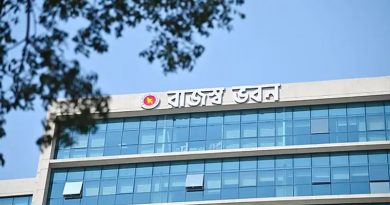Bangladesh’s economy has expanded by more than 50% over the past eight years, yet employment figures paint a starker reality—rising only 11% during the same period. The imbalance has sparked growing concern among economists, who cite a deepening trend of “jobless growth,” in which GDP gains fail to translate into corresponding job creation.
Speaking at a policy dialogue on Tuesday, Abdullah Nadvi, Research Director at Unnayan Shamannay, highlighted that while GDP growth has been widely praised, employment growth has lagged dramatically. “For every fivefold increase in output, employment has barely moved. Our growth model is not generating jobs at the scale we need,” he stated.
The disparity is evident across sectors:
- Industry: Despite its share of GDP rising from 33% to 38% over eight years, employment in the sector has declined by 1% annually—driven by automation and productivity-focused reforms.
- Agriculture: Worker numbers grew 30% between 2017 and 2022, but production only rose 10%, suppressing income growth and signaling underemployment.
- Services: GDP in this sector has grown by 6% annually, while job creation has crawled at 1%—with nearly 68% of workers engaged informally.
Nadvi also challenged assumptions around foreign direct investment (FDI), noting that while Bangladesh attracted $51 billion in FDI from 2009 to 2021, it generated fewer than 550,000 jobs. In contrast, $106 billion in domestic investment created over 2.8 million jobs, underscoring the urgency of prioritizing local capital for employment generation.
Researcher Maha Mirza argued that market-driven industrial growth alone cannot meet national employment needs. “Profit may increase under free-market dynamics, but the job gap will persist without deliberate policy intervention,” she said.
University of Dhaka economists warned that public fund mismanagement, including defaulted loans and corruption, has exacerbated the employment crisis. Others highlighted the risks of sectoral overdependence and outdated education systems that fail to equip youth with market-ready skills.
SM Zulfiqar Ali of BIDS emphasized that alignment between education and industry is critical as Bangladesh navigates the challenges of automation, digitization, and the Fourth Industrial Revolution.
With economic performance outpacing workforce integration, experts call for policy recalibration—focusing on productive investment, vocational training, and strategic diversification to ensure inclusive growth.






